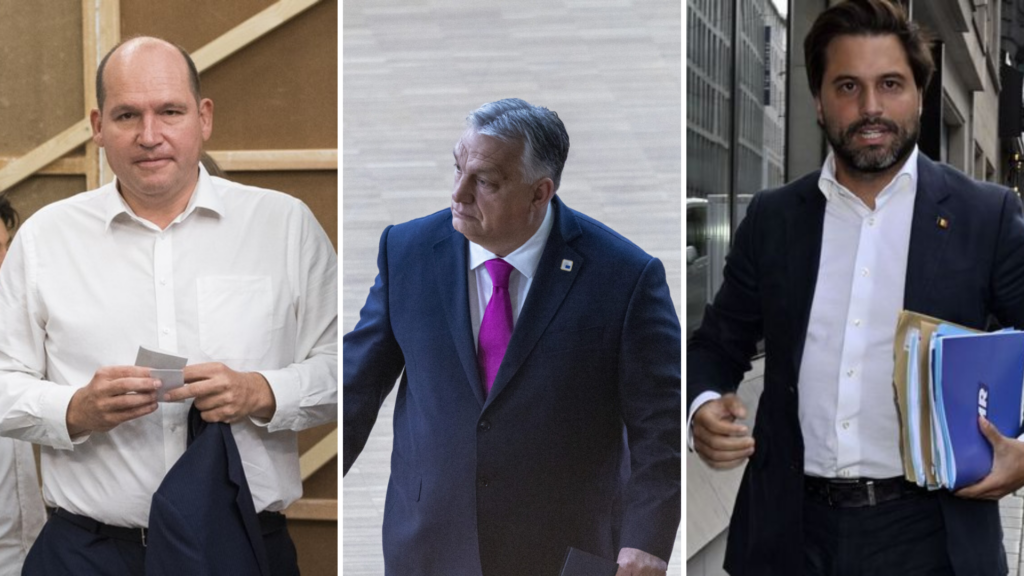Viktor Orbán's threat to buses to send buses of migrants from Hungary to Brussels was met with EU reproach. But the outcry in Belgium turned a European issue into a national one, creating internal disputes that illustrate the country's slide to the right, says political expert Jean Faniel.
"If Brussels wants migrants, Brussels can have them," Hungarian Prime Minister Viktor Orbán said in August. Orbán offered migrants a "free one-way ticket" to the European institutions – a move that has seen EU-Budapest relations deteriorate even further.
Since then, there has been uproar across Belgium's political spectrum. Mayor of Brussels Philippe Close (PS) called on the outgoing Federal Government to stop the buses at the border while State Secretary for Migration and Asylum Nicole de Moor (CD&V) said the plan was a "serious violation of the basic principles of European cooperation".
❗️Hungary begins to send Migrants on a "one-way" ticket from the Hungarian border to Brussels. 🇭🇺🇪🇺 pic.twitter.com/zoQKwfhwTV
— Based Hungary 🇭🇺 (@HungaryBased) September 7, 2024
However, such statements suggest that there has been a "misunderstanding" in Belgium, says political expert and Director General of the Belgian Center for Sociopolitical Research and Information (CRISP) Jean Faniel.
"In reality, it is not Philippe Close, nor the city of Brussels, nor even the inhabitants of Brussels who are targeted by the Hungarian statements," he told The Brussels Times. "It is the European Commission."
"Close has reacted to something that could have remained in the realm of European politics, especially as the chances of the idea becoming reality are rather slim."
Political football
The European Commission was quick to confirm that Orbán's plan is illegal. In addition, Germany (which the buses would need to pass through) is conducting passport checks at all borders in the wake of a knife attack perpetrated by a Syrian refugee. This is despite being part of the Schengen Zone.
Furthermore, Orbán's manoeuvre exemplifies how displaced people are instrumentalised for political gain by right-wing populists. Faniel says the Belgian reaction has only fuelled this, with the welfare of the migrants themselves was left undefended, whether by Close, De Moor, the European Commission or Georges-Louis Bouchez (MR). "No one in these statements cares about the migrants themselves, about the people. It is as though they are a football being kicked from one side to another."
Bouchez, leader of the French-speaking liberals, provoked the most shock when he defended Orbán's strategy, stating that "Hungary is right to make the progressive left feel the real effects of its (migration) policies."
To this, Close warned that "the boundary between the right and the extreme right is blurring day by day."
Le président du MR prend Orban pour modèle. Quand on vous dit que chez nous aussi la frontière entre la droite et l’extrême droite s’estompe de jour en jour. https://t.co/i3lb7syGrA
— Philippe Close (@PhilippeClose) September 9, 2024
'Uncalled for'
Faniel notes that Francophone Belgium does not have a far-right voter base and so Bouchez' comments were "uncalled for". The party leader's rhetoric now is similar to a remark made by MR candidate Pierre-Yves Jeholet in June, when he told Worker's Party of Belgium (PTB) candidate Nabil Boukili that "you don't have to stay in Belgium" if he didn't like the State's neutrality.
"MR's strong elections results were probably helped in part by his comments, which were a bit shocking, but which may have appealed to a certain section of the population," Faniel explained.
Now, by "caricaturing" the left, Bouchez' defense of Orbán only serves to reinforce the exploitation of migrants for political gains.
"There is a consensus in French-speaking Belgium to avoid politicising immigration because it ultimately benefits the far-right," says Faniel. "But I think there has been a real turning point within MR: first with the remark about Boukili in June, and now with Bouchez' comments about Orbán."

